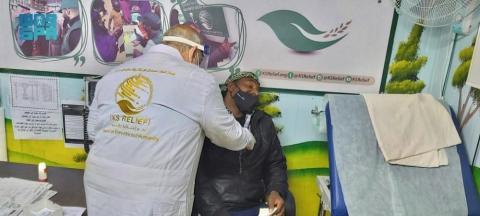Yemen Education Crisis: 2020 Secondary Data Review (SDR) Report


Pre-COVID Synopsis The presence of two educational systems in Yemen with different administrations – North and South –pose a challenge to mount a harmonized country-wide response, while project implementation is a major issue with delays of up to 130 days common from signature to project to start date, particularly in the North. Alongside these, prior to the declaration of the COVID-19 pandemic, the central education issues in the Yemen crisis were:
Widespread school closures owing to damage caused by the conflict, occupation by IDPs or armed elements, and insecurity around them. By early 2019, 43% of school-aged children across did not attend school.
Multiple protection concerns include insecurity on the way to and from schools which are open, documented attacks on schools (in most governorates, 50% of schools are physically affected by the conflict), mines/UXOs and the consequent MHPSS effects of all these, causing families to keep their children at home.
Rates of child disabilities (as high as 10%)2 has meant children are not sufficiently included in educational interventions across the country. A 2019 Study carried out in Abyan and Zinjibar found upwards of 33% of IDP children has a mental or physical disability.
With low attendance pre-COVID, rates of child labour were high among of boys, including its worst forms of labour including forced or compulsory recruitment in armed groups and girls at risk of early marriage as a means of survival.
Public schools across Yemen almost universally lack poor infrastructure particularly adequate WASH facilities - 37% of schools in Aden for example were assessed to not have adequate WASH facilities (for instance 311 out of the 333 districts in Yemen reported cholera cases at the beginning of 2019 alone).
When they are present, they are insufficient to the large school populations and do not account for girls’ WASH needs adequately.
School materials are often inadequate at each stage of the learning process and are supplemented by families via personal means in an economy which has been badly affected by the conflict.
Public school underfunding has meant that teachers often experience massive delays in salary payment - a considerable disincentive for them to regularly teach at the schools which do function and often spurs them to seek out alternative livelihoods or supplement their income in other ways.
School feeding programmes (consistently reported as a ‘must have’ for children’s attendance) as present in only 35% of schools in Yemen, also forcing individual schools and/or or families to raise the funds independently.

Paris — The French humanitarian organization Acted announced that it has delivered cash assistance to nearly 89,000 people affected by displa…

Sana’a — Fuel and food imports into ports under the control of Yemen’s Houthi movement on the Red Sea have continued to fall for…

ADEN — Yemen Airways, the country’s national carrier, announced it will resume flights between Aden and Abu Dhabi beginning in January…